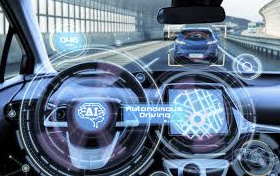As autonomous vehicle technology rapidly advances, the landscape of personal injury law is poised for significant transformation.
Law firms that frequently handle cases involving rideshare companies and electric vehicle manufacturers are already witnessing the early stages of this shift.
Chris Mova, founder of Mova Law Group in California, has extensive knowledge of litigating personal injury claims relating to vehicle accidents involving Tesla, Lyft, and Waze. “We’re seeing a paradigm shift in how liability is determined. It’s no longer just about the driver’s actions, but about the entire ecosystem that supports autonomous vehicles.”
As personal injury lawyers adapt to these changes, their role will become more crucial than ever. Not only must they advocate for their clients, but they also must help shape the legal framework that will govern this technology.
Redefining Liability
The traditional model of driver liability is becoming obsolete. In autonomous vehicle accidents, fault may lie with vehicle manufacturers, software developers, or even infrastructure providers.
This shift is likely to increase the complexity of cases and potentially lead to more class-action lawsuits against large tech and automotive companies.
The Role of Data in Litigation
Self-driving cars generate massive amounts of data, which will become crucial evidence in accident cases. This also raises significant privacy concerns.
Lawyers will need to become adept at handling and interpreting complex technical information, potentially requiring new specializations within personal injury law.
Hacked Vehicles
As vehicles become more connected, they also become more vulnerable to cyber threats. This opens the door for previously unforeseen things to go wrong on the road, with subsequent personal injury claims arising from accidents caused by vehicle hacking or software malfunctions.
In 2024, researchers at UC Irvine and Japan’s Keio University found concerning problems with the lidar object detection many self-driving cars rely on that could result in a lack of detection or falsified object detection by autonomous vehicles. According to Autoweek, this could “potentially lead to unpredictable and dangerous driving behavior.”
Should vulnerabilities such as these be exploited by attackers, personal injury attorneys will be required to develop a strong understanding of cybersecurity principles.
Regulatory Uncertainty
The rapid pace of autonomous vehicle development is outstripping current regulations. As lawmakers scramble to create new rules, we’re likely to see a period of legal uncertainty.
Staying informed about evolving regulations across different jurisdictions will be crucial for effective advocacy, especially for those law firms on the bleeding edge.
Adaptation in the Insurance Industry
The insurance model for self-driving cars may be forced to shift from individual policies to manufacturer liability coverage. This change could dramatically alter how claims are processed and compensated, requiring new approaches to negotiation and settlement.
Human-Machine Interaction Challenges
In semi-autonomous vehicles, the transition between human and machine control is a critical moment. Accidents occurring during this handoff may introduce complex questions of liability, requiring careful analysis of both human behavior and machine performance.
Ethical Considerations in Court
Self-driving cars are programmed to make split-second decisions, some of which may involve ethical choices. How these decisions are made could become a significant point of contention in courtrooms, potentially involving expert testimony from ethicists and AI specialists.
According to Mova, “The future of personal injury law in the age of self-driving cars is complex, but with the right preparation and expertise, the legal community can ensure that the rights of individuals are protected as we navigate this exciting new terrain.”




